Community Engagement for Flood Resilience Provides New Hope in Kampala’s Informal Settlements
In the informal settlements in the outskirts of Greater Kampala’s Central Business District, improper solid waste management results in the clogging of drainage systems. This, in addition to the seasonal downpours, whose intensification is attributed to climate change, have exposed already vulnerable communities to a high risk of seasonal urban flash flooding. This is intensified by the fact that Kampala’s informal settlements are situated in flood-prone low-lying areas.
Associated with the floods are huge socio-economic losses due to the damage of assets and goods, and disruption of business and work operations. Nakato Caroline, a small business owner and resident of Sembule A Zone in Nalukulongo, states that floods continuously disrupt her retail shop by destroying valuable merchandise and leaving her shop inaccessible to customers. This worsens the financial strain on her family. She cites the insufficient plastic waste management as a major contributor to the clogging of the channels and the consequent flooding in her community.
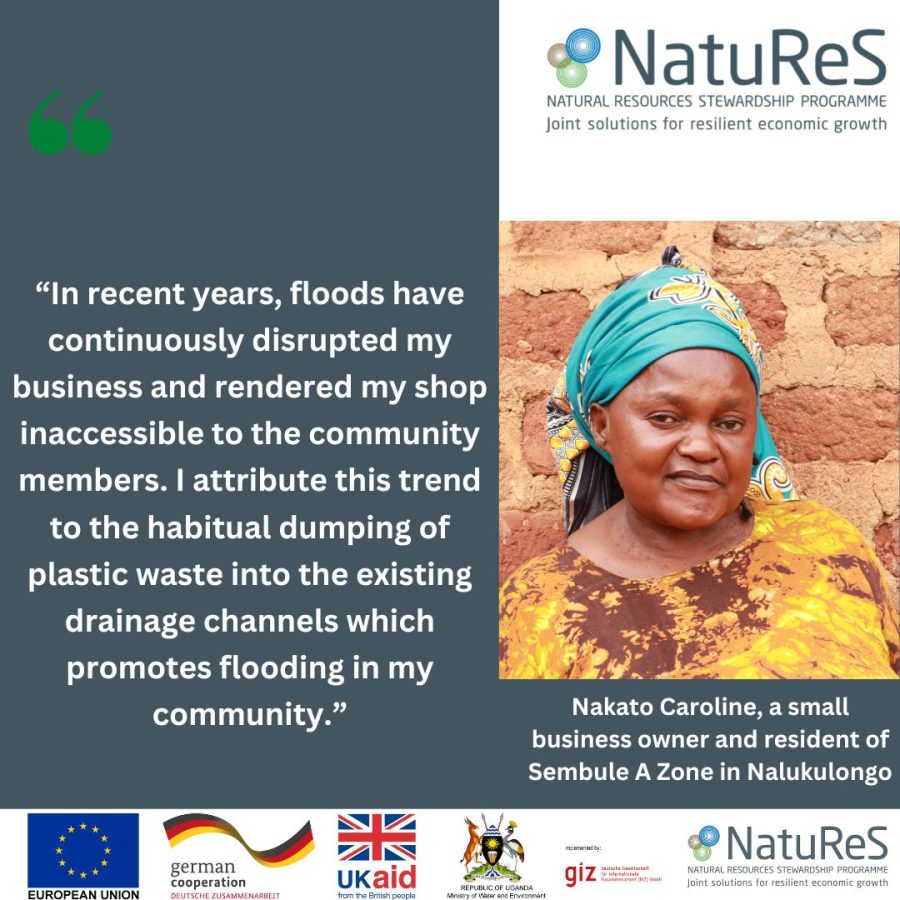
The game changer: collective action
To sustainably build the resilience of these communities to flooding, the Greater Kampala Integrated Flood Resilience Partnership, supported by the Natural Resources Stewardship Programme (NatuReS), is spearheading community action for flood resilience in two flood hotspots in Kampala’s informal settlements of Kinawataka and Nalukolongo. This partnership is being championed by ACTogether Uganda and the Kampala Capital City Authority (KCCA) through a project dubbed “Community Action for Flood Resilience.” ACTogether is a Ugandan Civil Society Organisation affiliated with Slum Dwellers International (SDI) which supports the National Slum Dwellers Federation of Uganda by facilitating processes that develop organizational capacity at the local level and promote pro-poor policy and practice in Uganda’s urban arena.
The “Community Action for Flood Resilience” project under the partnership empowers and builds the capacity of vulnerable communities to take the lead in the fight against floods. This is done through community-centered behavioural change activities to reduce the quantity of solid waste ending up in the drainage channels.
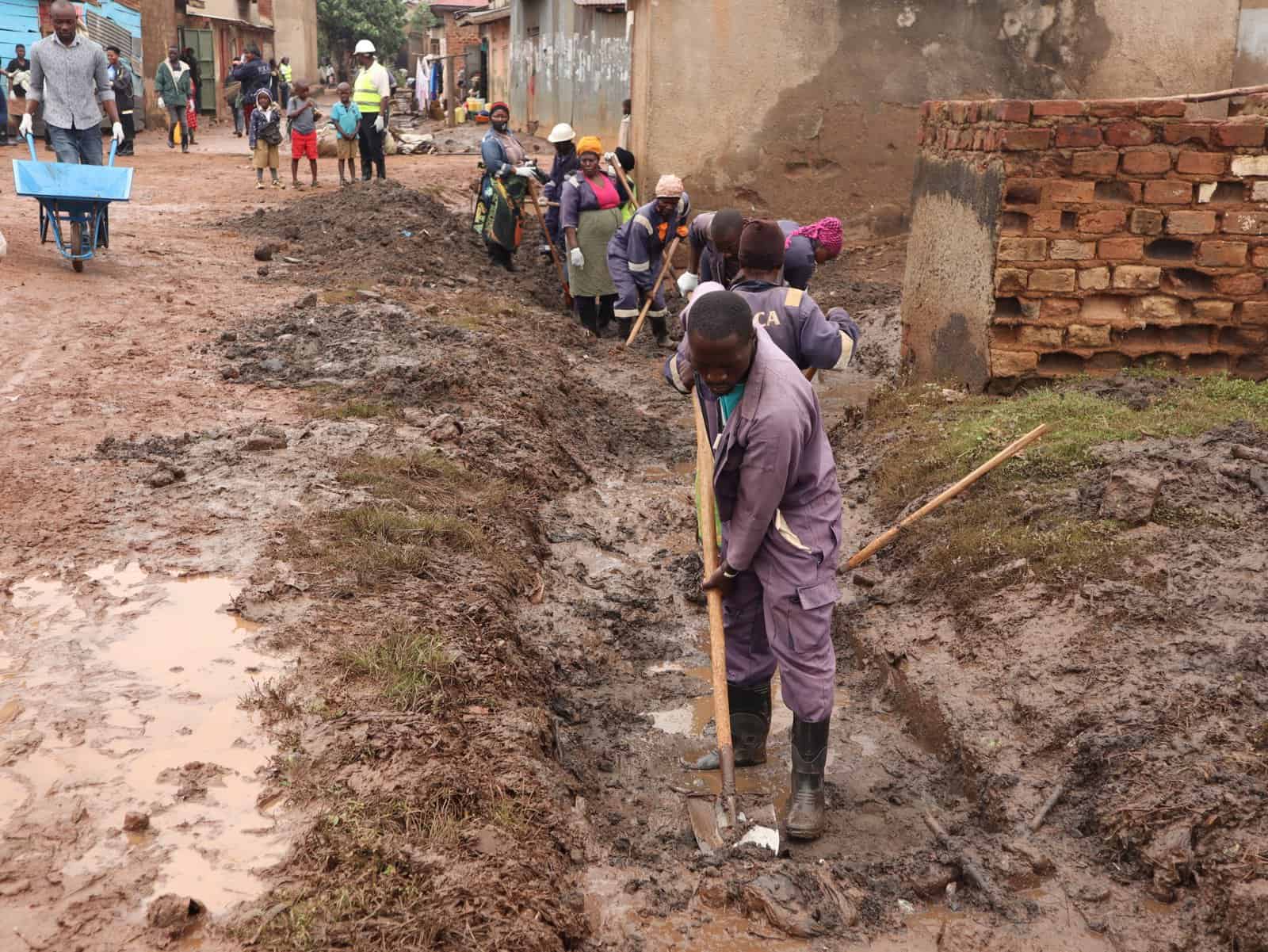

Through the project, 10 community members (5 from Kinawataka and 5 from Nalukulongo sub-catchments) were trained to become flood control champions, equipped with knowledge on the causes, effects, mitigation, and adaptation measures to the flooding challenges in their respective communities. The flood control champions are community members who were already spearheading awareness and dialogue sessions aimed at sensitizing their fellow community members on issues like malaria etc.
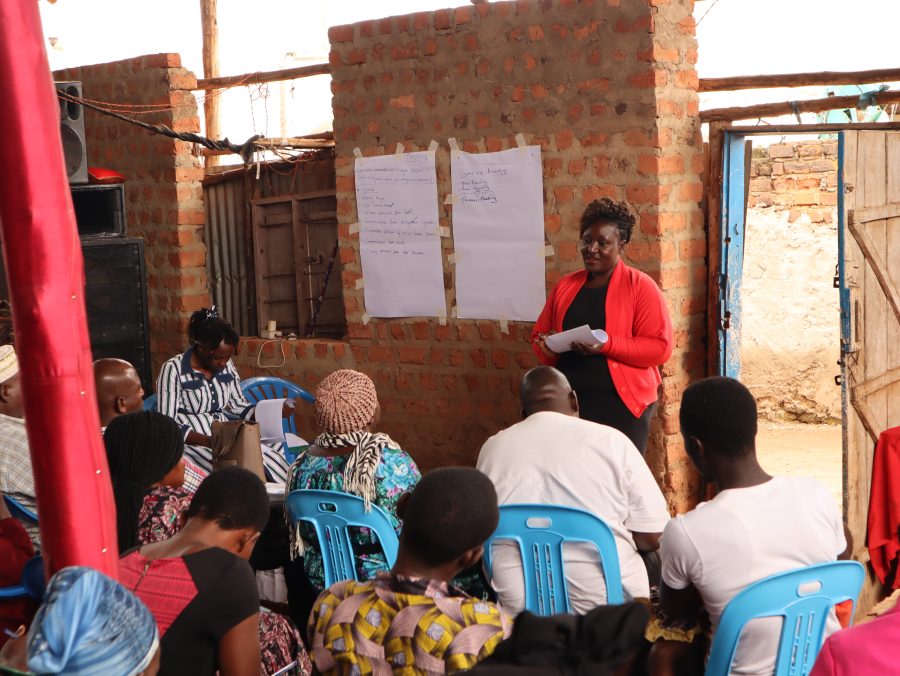
Community initiative under a partnership approach
The actions of the trained flood control champions have had a cascading impact in these communities, particularly in terms of a positive mindset change towards communities’ capacities for flood resilience. They organized and conducted community dialogues called settlement forums, as well as community radio talk shows. Through these, the communities have been trained on urban flood risk and practical mitigation measures to enable them to control floods in their areas. Morever, they provided a platform for dialogue with other stakeholders and duty bearers, such as community leaders, on the flooding. These include causes, effects, and ways to collectively contribute to addressing them.
Through the settlement forums, community-led monthly clean-up exercises have been taken up in Kinawataka and Nalukolongo. These have instilled a sense of community and social responsibility among the members. The communities acknowledge their contribution towards flooding through improper solid waste management. In turn, they collect solid waste and desilt clogged secondary and tertiary drainage channels within their surroundings that would otherwise contribute to the flooding. This is further complementing the Kampala Capital City Authority’s (KCCA) solid waste management and flood control efforts.
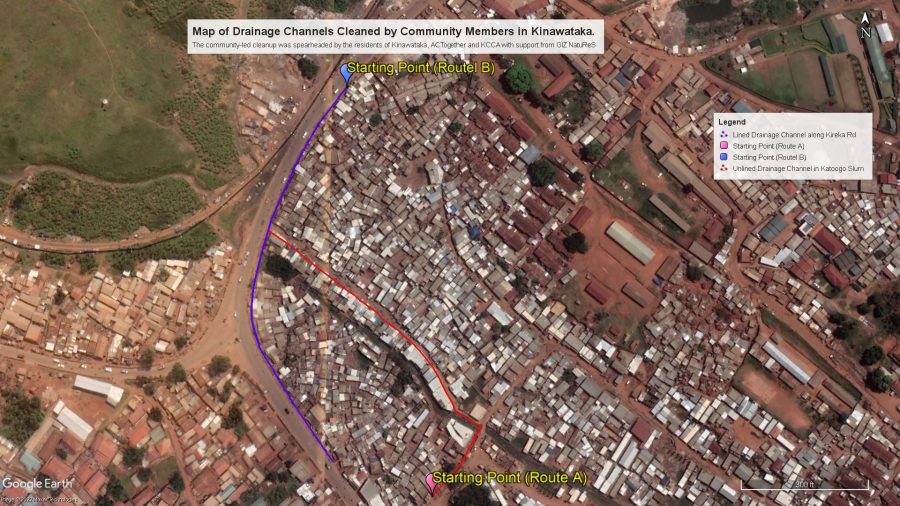
The flood control champions, officials, and community members speak out
As a follow-up to the actions led by the flood control champions and the communities, ACTogether organized community planning and review meetings. In these meetings, the flood champions, community leaders, government officials, and community members shared their experiences and lessons learned from the joint initiative.
Nakato Leticia, one of the flood champions, expressed her excitement and gratitude for being a part of this partnership learning from experts’ proven ways to improve community flood resilience. In addition, she appreciated having a platform to disseminate this knowledge to members of her community.
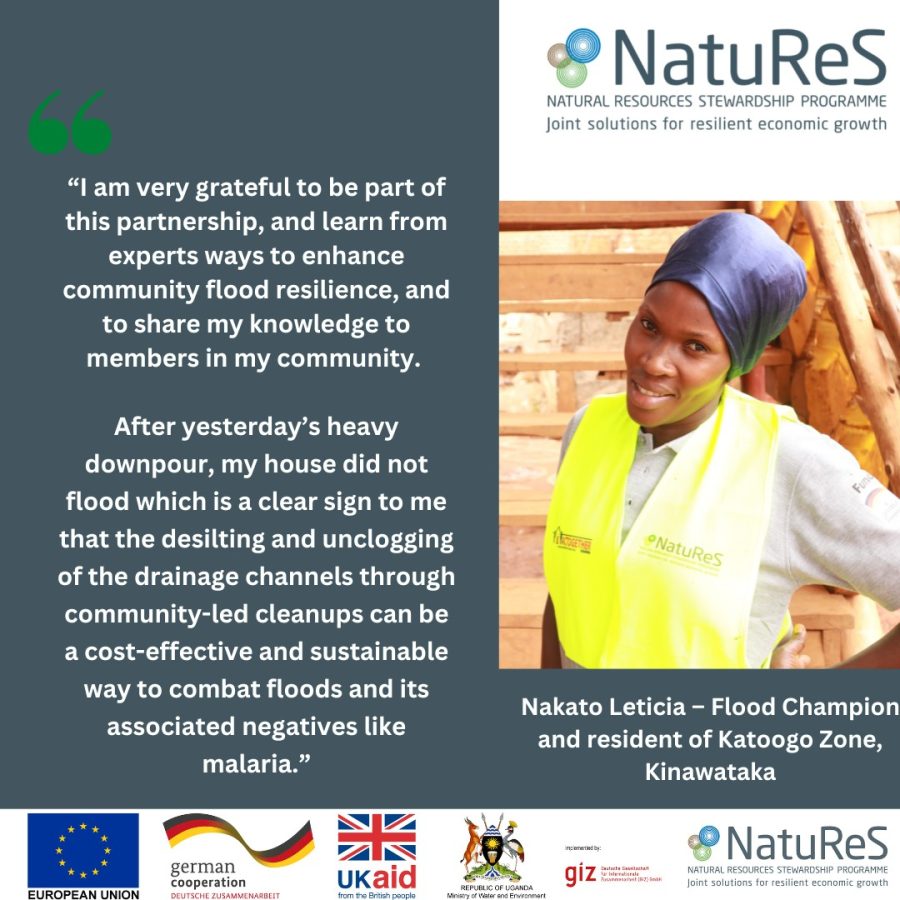
However, the effects of the community-led clean-up efforts went much further: Nyanzi Bob, Head of the Solid Waste Management Unit at KCCA (Rubaga Division, in which also Nalukolongo is located), shared that they have also improved the relations between the Kampala Capital City Authority and the local communities. This only became possible by working together as partners for a common objective.
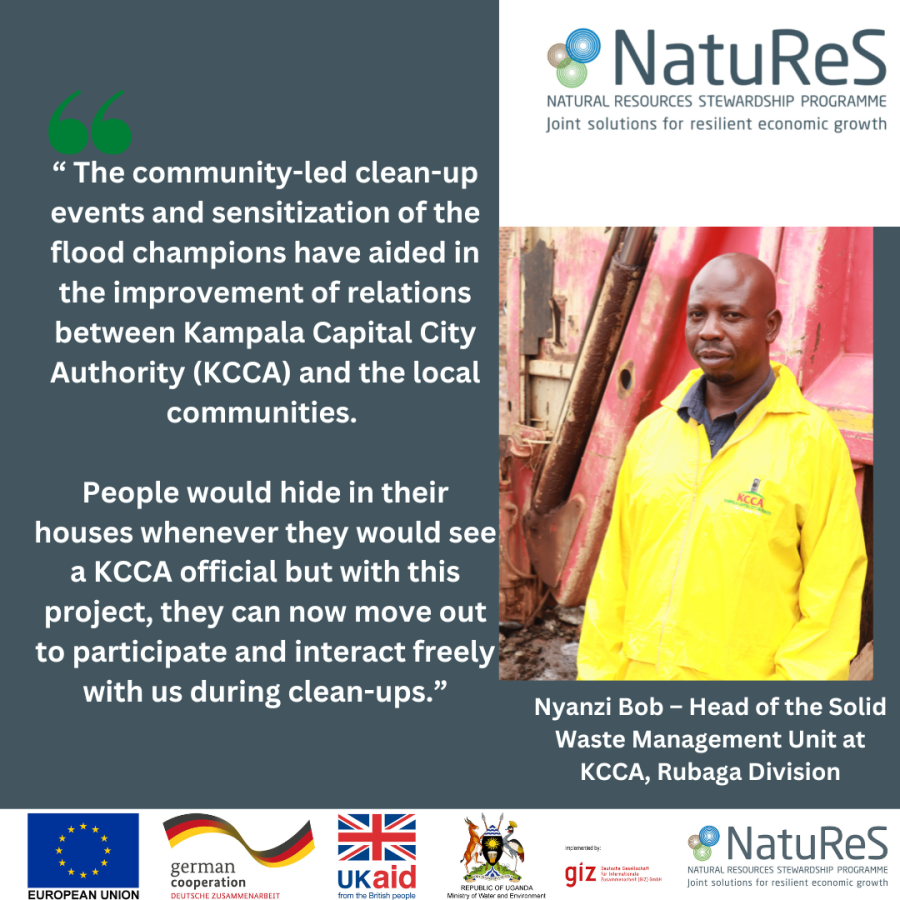
For further information about the partnership and natural resources stewardship, follow us on Twitter or subscribe to our newsletter!
Authors
| Simon Peter Akena Junior Advisor GIZ-NatuReS | Willy Bunga Junior Consultant GIZ-NatuReS | Peter Mwambu Project Manager ACTogether Uganda |